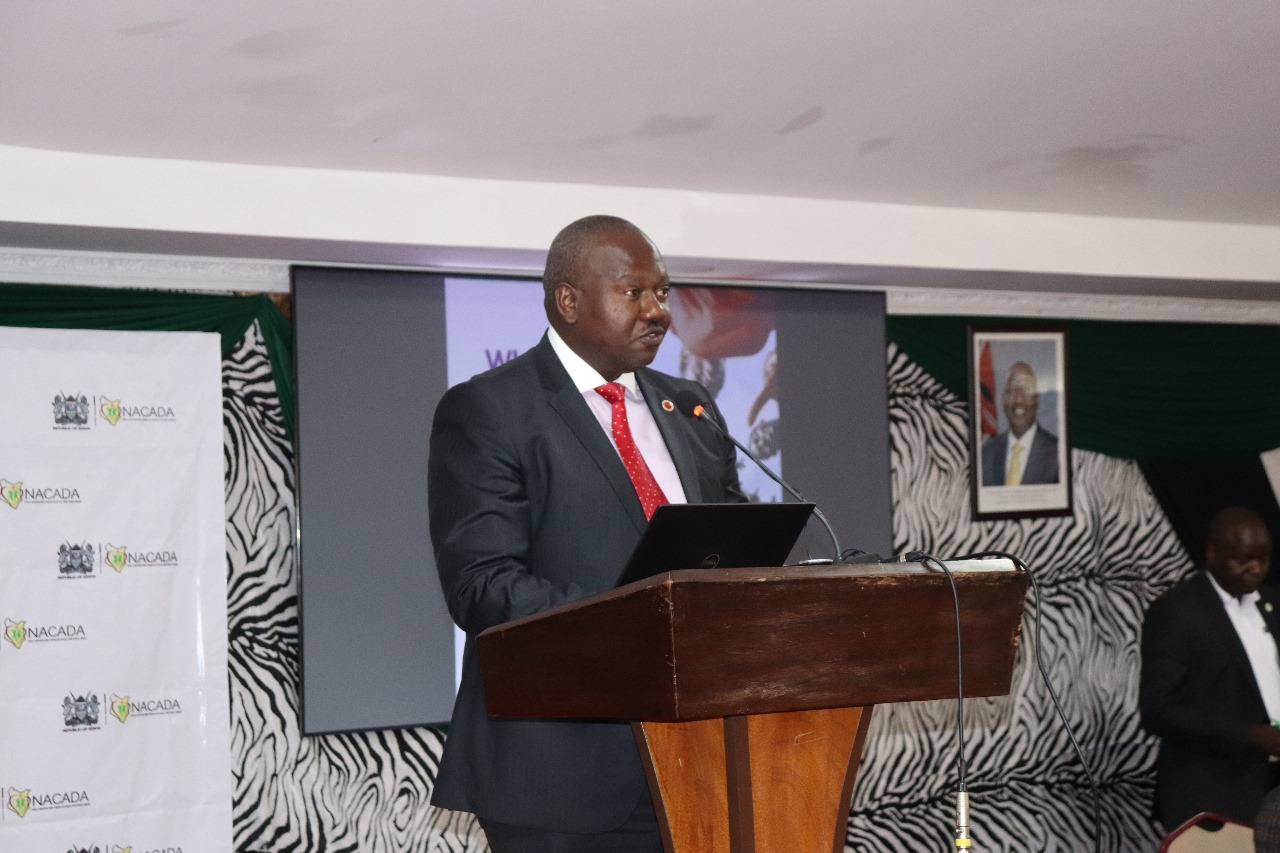
 Nacada CEO Dr.Anthony Omerikwa. [PHOTO: KEG/X]
Nacada CEO Dr.Anthony Omerikwa. [PHOTO: KEG/X]The National Authority for the Campaign against Alcohol and Drug Abuse (Nacada) has urged universities’ leaderships to work on ensuring that their students stay clear of drugs and substance abuse.
This is after a report released on Thursday, dubbed Status of Drugs and Substance Use (DSU) among university students, showed that the usage of alcohol and drugs is high.
Nacada CEO Anthony Omerikwa gave recommendations for the university management and stakeholders to tame the trend.
He said they should roll out deliberate and sustained DSU prevention interventions, including strong mentorship programmes tailored to the needs of the vulnerable student sub-populations.
“The university management should consider mandatory accommodation of university students within the institutions and in accredited privately managed accommodation facilities outside the university,” he added.
Further, the university management and the Ministry of Education should strengthen the guidance and counseling departments.
This is to support the provision of brief interventions for students with Substance Use Disorders (SUDs), mental health disorders, and other unresolved trauma.
He underlined the importance of collaboration and strengthening the university chaplaincies to play an active role in the prevention of DSU including other programmes intended to moderate the risk factors for substance use among students.
The government should also provide affordable and accessible treatment and rehabilitation services tailored to the unique needs of students in higher learning institutions.
Further, Nacada in collaboration with the university management, are to leverage social media and other online platforms to reach the students with tailored prevention programmes and factual messaging.
This is to counter myths, misinformation, and misconceptions related to DSU.
At the same time, parents and guardians were urged to enhance monitoring and role modeling for university students throughout their undergraduate academic journey.
The Authority will also continue partnering with the university management to develop and implement tailored DSU prevention and management guidelines.
“Nacada in collaboration with the university management and other relevant agencies to create awareness of the effects and consequences of emerging new psychoactive substances, including cannabis edibles, synthetic drugs, and novel tobacco products,” Omerikwa said.
He added that university management should strengthen the co-curricular activities, equip the sports department, and come up with innovative sporting activities that are exciting and meet the needs of the students.
Further, they should identify parenting as a key intervention area for the prevention and control of DSU among university students and utilise opportunities such as the student orientation week to target parents.
The university management, through the relevant department, should consider implementing gender-specific programmes tailored to the unique needs and vulnerabilities of male and female students.
They also need to strengthen and sustain the orientation progammes to ease the transition of first-year students to lessen the stress and trauma that they undergo when settling down in the new environment.
In conclusion, Omerikwa said the government should consider the inclusion of institutions of higher learning to the 300m rule prescribed in the Alcoholic Drinks Control Act, 2010 to ensure safe spaces for students.













